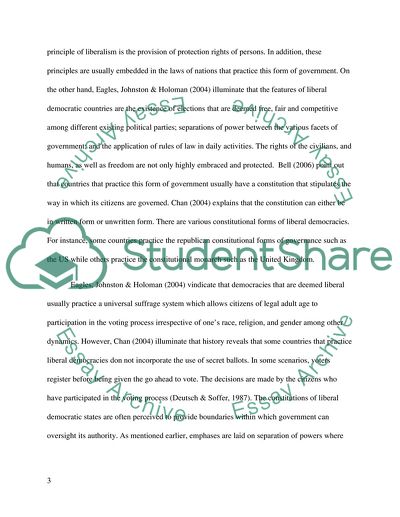Cite this document
(“Is liberal democracy the best government system Critically assess Essay”, n.d.)
Retrieved from https://studentshare.org/social-science/1687837-is-liberal-democracy-the-best-government-system-critically-assess
Retrieved from https://studentshare.org/social-science/1687837-is-liberal-democracy-the-best-government-system-critically-assess
(Is Liberal Democracy the Best Government System Critically Assess Essay)
https://studentshare.org/social-science/1687837-is-liberal-democracy-the-best-government-system-critically-assess.
https://studentshare.org/social-science/1687837-is-liberal-democracy-the-best-government-system-critically-assess.
“Is Liberal Democracy the Best Government System Critically Assess Essay”, n.d. https://studentshare.org/social-science/1687837-is-liberal-democracy-the-best-government-system-critically-assess.


